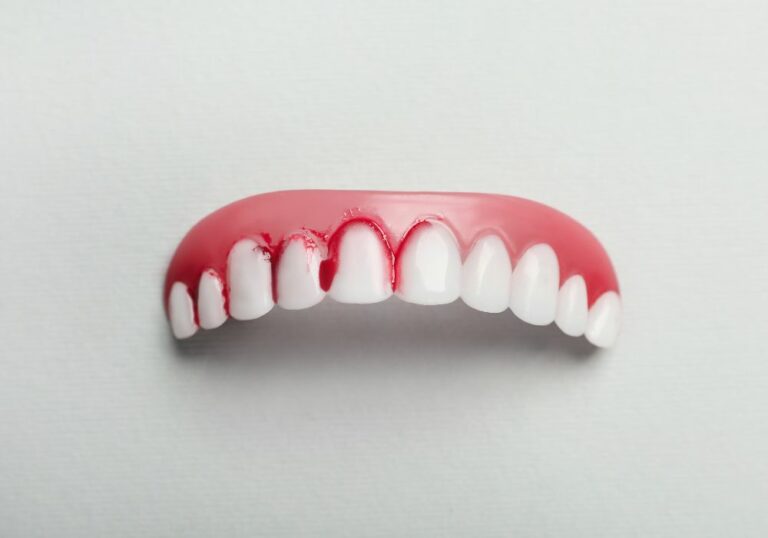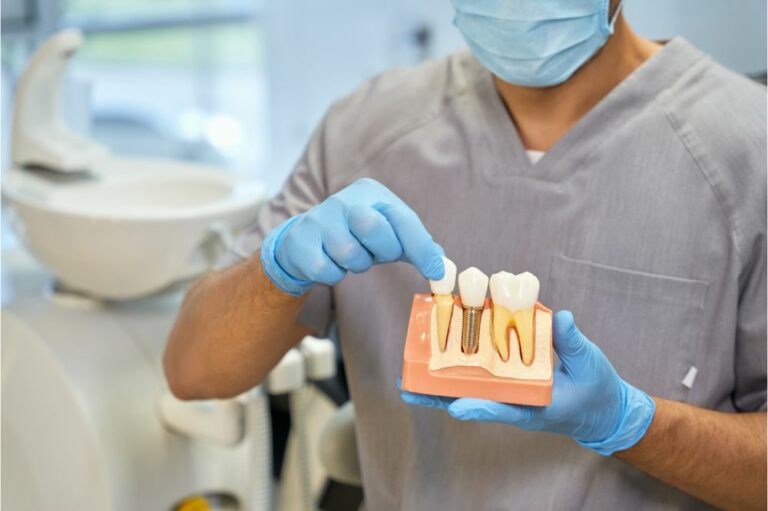Have you ever noticed that your teeth feel gritty or rough? It’s a common sensation that many people experience, but the reasons behind it can vary. In this article, we’ll explore some of the common causes of gritty teeth, as well as ways to prevent and remedy the issue.
Understanding the composition of teeth can help explain why they might feel gritty. The outer layer of teeth is made up of enamel, which is the hardest substance in the body. However, enamel can erode over time due to factors such as acid erosion from certain foods or drinks, or from poor oral hygiene. When the enamel wears away, the underlying dentin layer can become exposed, leading to a rough or gritty feeling.
There are several mechanisms behind why teeth might feel gritty, such as the buildup of plaque or tartar, or the presence of microscopic cracks or pits in the enamel. Additionally, certain medical conditions or medications can contribute to the sensation. By understanding the causes, we can take steps to prevent and treat gritty teeth.
Key Takeaways
- Gritty teeth can be caused by factors such as enamel erosion, plaque buildup, and medical conditions.
- Maintaining good oral hygiene and avoiding acidic foods and drinks can help prevent gritty teeth.
- If gritty teeth persist, it’s important to see a dentist to rule out any underlying dental issues.
Understanding the Composition of Teeth
Teeth are complex structures composed of different layers, each with its unique characteristics and functions. Understanding the composition of teeth is essential to identify the possible causes of grittiness and other dental issues.
Enamel
Enamel is the outermost layer of the tooth, responsible for protecting the tooth from physical and chemical damage. It is the hardest substance in the body, composed mainly of hydroxyapatite crystals, a mineral that gives it its strength and hardness.
However, enamel is not impervious to damage, and it can wear off over time due to acidic foods, poor oral hygiene, or tooth grinding.
Dentin
Dentin is the layer beneath the enamel, providing support and structure to the tooth. It is softer than enamel and composed of tubules that transmit sensations to the nerves in the pulp.
When the enamel wears off, the dentin becomes exposed, leading to sensitivity, pain, and a gritty feeling.
Pulp
The pulp is the innermost layer of the tooth, containing blood vessels, nerves, and connective tissue. It is responsible for nourishing and maintaining the tooth.
If the pulp becomes infected or inflamed, it can cause severe pain and lead to tooth loss.
Cementum
Cementum is a layer that covers the root of the tooth, anchoring it to the jawbone. It is softer than enamel and dentin and can wear off due to gum disease or aggressive brushing.
Overall, teeth are complex structures that require proper care and maintenance to function correctly. Understanding the composition of teeth can help identify the possible causes of grittiness and other dental issues, leading to timely intervention and treatment.
Mechanisms Behind Grittiness
There are several reasons why your teeth may feel gritty, including:
- Tartar buildup: Tartar is a hard, yellowish deposit that forms on teeth when plaque hardens. It can cause a rough or gritty feeling on the teeth. Regular brushing and flossing can help prevent tartar buildup.
- Dry mouth: A lack of saliva can cause the mouth to feel dry and gritty. Saliva helps to keep the mouth moist and wash away food particles and bacteria. Certain medications, medical conditions, and dehydration can all cause dry mouth.
- Acidic foods and drinks: Consuming acidic foods and drinks can erode the enamel on teeth, making them feel rough or gritty. Examples of acidic foods and drinks include citrus fruits, soda, and sports drinks.
- Teeth grinding: Grinding or clenching the teeth can cause them to feel rough or gritty. This can also lead to other dental problems, such as tooth sensitivity and jaw pain.
- Poor oral hygiene: Not brushing and flossing regularly can lead to a buildup of plaque and bacteria on teeth, which can cause them to feel gritty.
It’s important to maintain good oral hygiene habits and visit your dentist regularly to prevent grittiness and other dental problems.
Common Causes of Grittiness
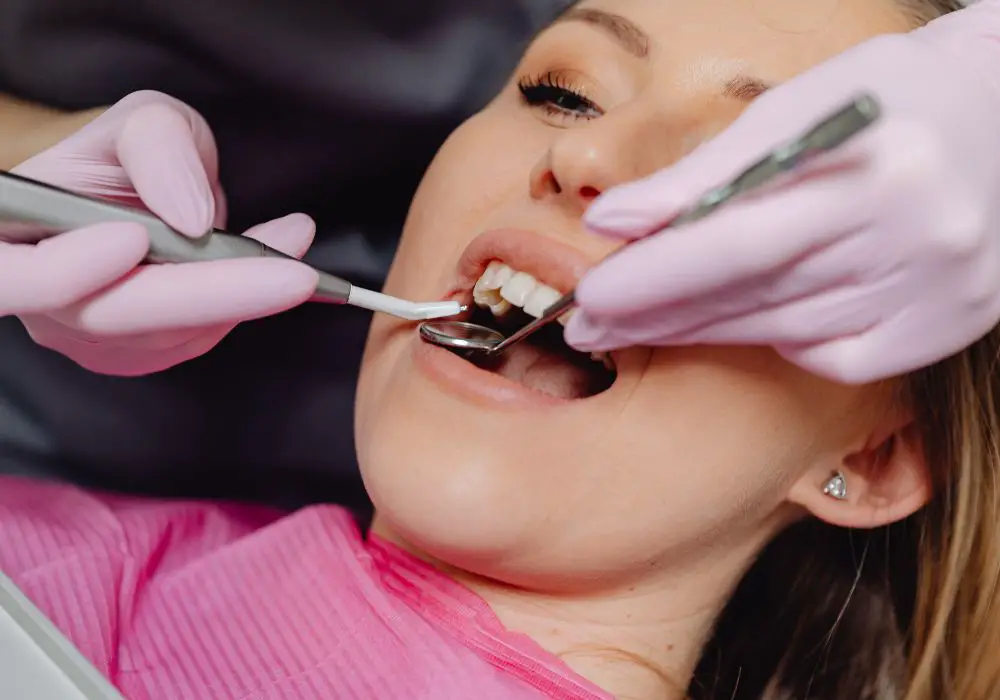
There are several reasons why your teeth may feel gritty. Here are some of the most common causes:
- Plaque buildup: Plaque is a sticky film of bacteria that forms on your teeth. When plaque is not removed regularly, it can harden into tartar, which can cause a gritty feeling on your teeth.
- Enamel erosion: The enamel on your teeth is the hard, protective layer that covers the sensitive inner layers. Enamel erosion can occur due to acidic foods and drinks, brushing too hard, or grinding your teeth. When your enamel is worn down, your teeth can feel gritty.
- Dry mouth: Saliva helps to keep your mouth clean and lubricated. When you have a dry mouth, your teeth may feel gritty due to the lack of moisture.
- Gum disease: Gum disease is an infection of the tissues that support your teeth. It can cause your gums to recede, exposing the roots of your teeth and making them feel gritty.
- Certain foods: Some foods, such as spinach or strawberries, contain oxalic acid, which can leave a chalky feeling in your mouth. Other foods, such as popcorn or seeds, can get stuck in your teeth and cause a gritty sensation.
If you are experiencing a gritty feeling on your teeth, it is important to talk to your dentist. They can help determine the underlying cause and recommend the best course of treatment. In the meantime, make sure to brush and floss regularly, drink plenty of water, and avoid acidic or sugary foods and drinks.
Diet and Grittiness
When it comes to the grittiness of your teeth, your diet can play a significant role. Here are some dietary factors that can contribute to the gritty feeling on your teeth.
Sugary Foods
Consuming sugary foods and drinks can lead to the buildup of plaque on your teeth. Plaque is a sticky film of bacteria that forms on your teeth and can cause them to feel gritty. The bacteria in the plaque feed on the sugars in your food and produce acid that can erode your tooth enamel, leading to sensitivity and grittiness.
To avoid this, try to limit your intake of sugary foods and drinks. If you do consume them, make sure to brush your teeth afterward to remove any lingering sugar and plaque.
Acidic Foods
Acidic foods, such as citrus fruits, tomatoes, and vinegar, can also contribute to the grittiness of your teeth. Acidic foods can erode your tooth enamel, making your teeth more susceptible to sensitivity and grittiness.
To minimize the effects of acidic foods on your teeth, try to consume them in moderation and drink water afterward to help neutralize the acid.
Alcohol
Alcohol can also contribute to the grittiness of your teeth. Alcohol can cause dehydration, which can lead to a dry mouth. A dry mouth can make it easier for bacteria to grow, leading to the buildup of plaque and a gritty feeling on your teeth.
To avoid this, try to limit your alcohol intake and drink plenty of water to stay hydrated.
Caffeine
Caffeine can also contribute to the grittiness of your teeth. Caffeine can cause dehydration, which can lead to a dry mouth. A dry mouth can make it easier for bacteria to grow, leading to the buildup of plaque and a gritty feeling on your teeth.
To minimize the effects of caffeine on your teeth, try to limit your intake and drink plenty of water to stay hydrated.
Oral Hygiene and Grittiness
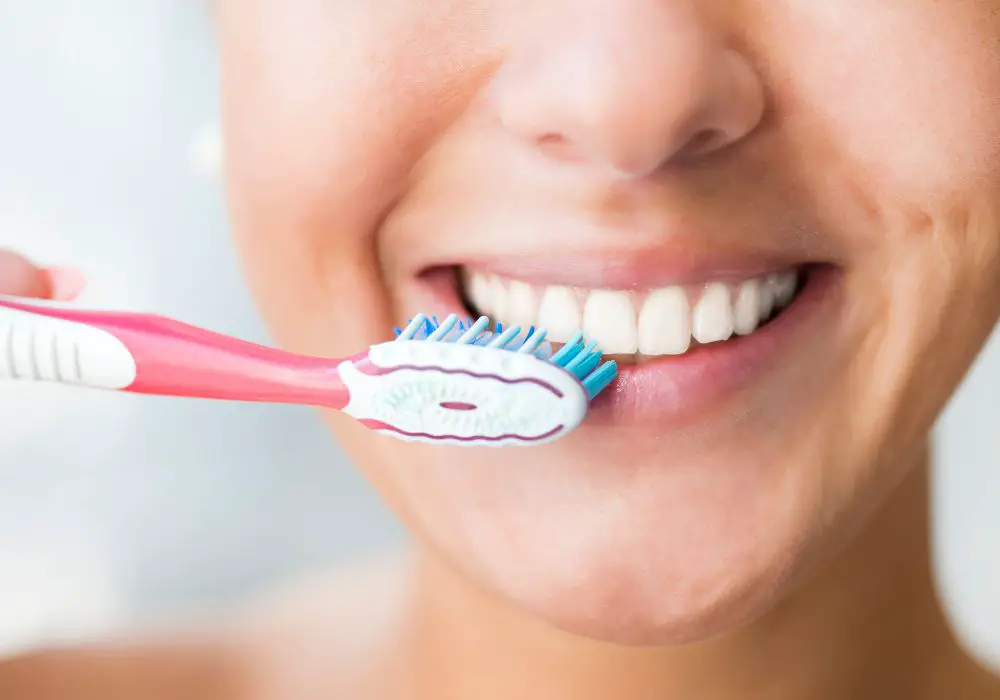
Maintaining good oral hygiene is essential to prevent the buildup of plaque and tartar, which can cause your teeth to feel gritty. Here are some tips to help you maintain good oral hygiene and prevent grittiness.
Brushing Habits
Brushing your teeth twice a day is essential to remove food particles and plaque from your teeth. Use a soft-bristled toothbrush and fluoride toothpaste to brush your teeth. Make sure to brush all surfaces of your teeth, including the front, back, and chewing surfaces.
It is also important to brush your tongue to remove bacteria and freshen your breath. You can use a tongue scraper if you prefer.
Avoid brushing too hard, as this can damage your tooth enamel and gums. Use gentle circular motions to brush your teeth.
Flossing Habits
Flossing is essential to remove food particles and plaque from between your teeth and along the gum line. Use a piece of floss about 18 inches long and wrap it around your fingers. Gently slide the floss between your teeth and move it up and down to remove any debris.
Make sure to floss all teeth, including the back teeth. You can also use a water flosser if you prefer.
Use of Mouthwash
Mouthwash can help kill bacteria and freshen your breath. It is important to choose a mouthwash that contains fluoride and does not contain alcohol, as alcohol can dry out your mouth and cause irritation.
Use mouthwash after brushing and flossing your teeth. Swish it around your mouth for 30 seconds and spit it out. Do not rinse your mouth with water after using mouthwash.
By following these tips, you can maintain good oral hygiene and prevent your teeth from feeling gritty. If you continue to experience grittiness, make sure to schedule an appointment with your dentist to rule out any underlying dental issues.
Medical Conditions Leading to Grittiness
There are various medical conditions that can lead to a gritty feeling in the teeth. Here are some of the most common ones:
Dry Mouth
Dry mouth is a condition where the mouth doesn’t produce enough saliva. Saliva is important for keeping the mouth moist and washing away food particles and bacteria. When the mouth is dry, it can lead to a gritty feeling in the teeth. Dry mouth can be caused by medications, dehydration, and certain medical conditions such as Sjogren’s syndrome.
If you have dry mouth, it’s important to drink plenty of water and avoid caffeine and alcohol. You can also try using over-the-counter saliva substitutes or speak to your doctor about prescription medications.
Gum Disease
Gum disease, also known as periodontitis, is a serious gum infection that damages the soft tissue and can destroy the bone that supports your teeth. It can cause teeth to loosen or lead to tooth loss. One of the symptoms of gum disease is a gritty feeling in the teeth.
To prevent gum disease, it’s important to practice good oral hygiene such as brushing twice a day, flossing daily, and visiting your dentist regularly. If you have gum disease, your dentist may recommend deep cleaning or surgery to treat it.
Acid Reflux
Acid reflux is a condition where stomach acid flows back up into the esophagus. This can lead to heartburn, chest pain, and a sour taste in the mouth. It can also cause a gritty feeling in the teeth due to the acid eroding the enamel.
To prevent acid reflux, it’s important to avoid trigger foods such as spicy or acidic foods, caffeine, and alcohol. You can also try raising the head of your bed, eating smaller meals, and avoiding eating before bedtime. If you have severe acid reflux, your doctor may recommend medication or surgery.
If you’re experiencing a gritty feeling in your teeth, it’s important to speak to your dentist or doctor to determine the underlying cause and receive proper treatment.
Prevention and Remedies
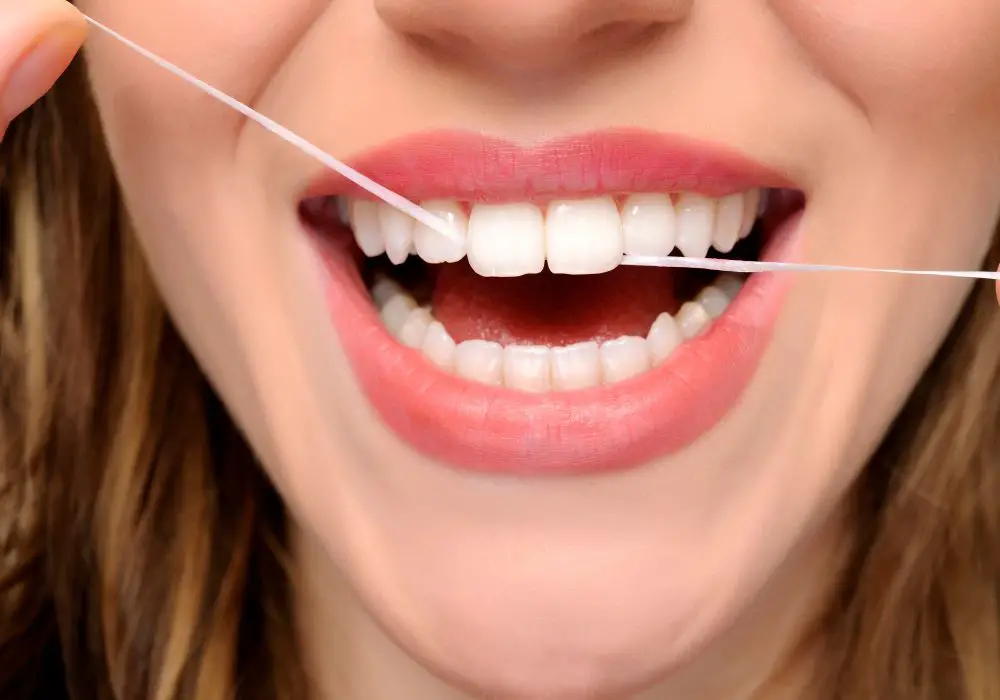
If you’re experiencing gritty teeth, there are steps you can take to prevent it from happening or alleviate the discomfort.
Dietary Changes
One way to prevent gritty teeth is to make dietary changes. Reduce your intake of acidic foods and drinks, such as citrus fruits and juices, soda, and coffee. These can wear down tooth enamel and cause sensitivity. Instead, opt for water, milk, and non-acidic foods like leafy greens, nuts, and cheese.
Oral Hygiene Improvements
Improving your oral hygiene routine can also help prevent gritty teeth. Make sure you’re brushing twice a day with a fluoride toothpaste and flossing daily. Consider using a mouthwash that contains fluoride to help strengthen teeth. If you grind your teeth at night, talk to your dentist about getting a mouthguard to protect your teeth.
Medical Treatments
If your gritty teeth are caused by an underlying medical condition, such as dry mouth or gum disease, it’s important to seek treatment from a healthcare professional. Your dentist may recommend a fluoride treatment or a deep cleaning to remove tartar buildup. In severe cases, surgery may be necessary to treat gum disease.
Remember, preventative measures are key to maintaining good oral health and preventing gritty teeth. By making dietary changes, improving your oral hygiene routine, and seeking medical treatment when necessary, you can keep your teeth healthy and strong.
Frequently Asked Questions
Can antibiotics cause a gritty feeling on teeth?
Yes, antibiotics can cause a gritty feeling on teeth. Some antibiotics, such as tetracycline, can cause teeth to become discolored and rough. It is important to talk to your dentist or doctor if you experience any unusual symptoms while taking antibiotics.
Why do teeth feel fuzzy after taking antibiotics?
Teeth may feel fuzzy after taking antibiotics because they can disrupt the natural balance of bacteria in the mouth. This can lead to an overgrowth of harmful bacteria, which can cause plaque to form on the teeth. It is important to maintain good oral hygiene habits, such as brushing and flossing regularly, to prevent plaque buildup.
What causes the bottom of front teeth to feel rough?
The bottom of front teeth may feel rough due to enamel erosion. This can be caused by a variety of factors, such as consuming acidic foods and drinks, brushing too hard, or grinding your teeth. It is important to see a dentist if you experience any unusual symptoms, such as roughness or sensitivity, to prevent further damage to the teeth.
Why do teeth feel dry and rough?
Teeth may feel dry and rough due to a lack of saliva in the mouth. This can be caused by a variety of factors, such as dehydration, certain medications, or medical conditions. It is important to stay hydrated and talk to your doctor or dentist if you experience any unusual symptoms.
Can COVID cause teeth to feel furry?
There is currently no evidence to suggest that COVID-19 can cause teeth to feel furry. However, some people may experience dry mouth as a symptom of COVID-19, which can lead to a rough or fuzzy feeling on the teeth.
Why do teeth feel fuzzy after eating?
Teeth may feel fuzzy after eating because food particles can get stuck in between the teeth and gums. This can lead to the growth of harmful bacteria, which can cause plaque to form on the teeth. It is important to brush and floss regularly to prevent plaque buildup and maintain good oral hygiene habits.

